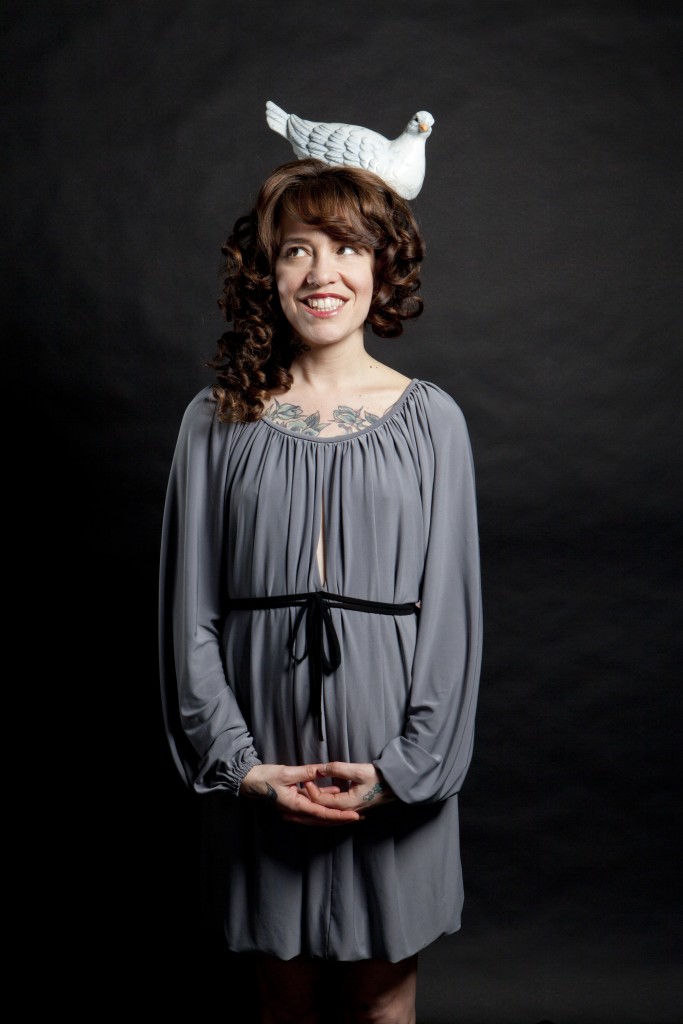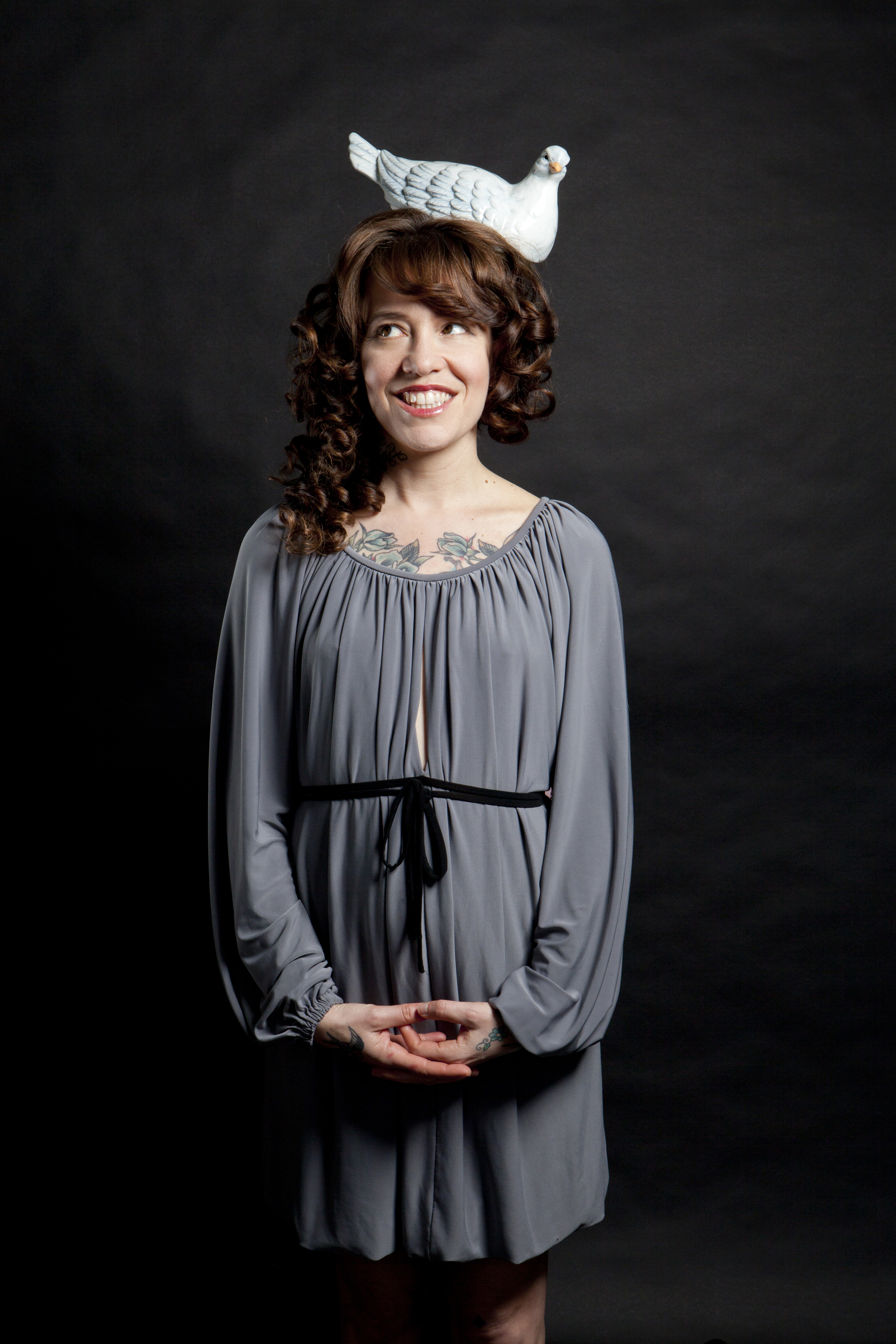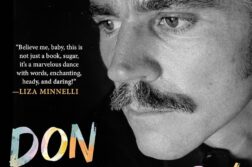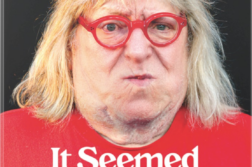LIKE a latter-day Jean Genet, Michelle Tea is a writer whose work has always been closely associated with the queer demimonde. For almost two decades, she has produced a series of memoirs and autobiographical novels about her growth as a working-class artist and sexual maverick, beginning with The Passionate Mistakes and Intricate Corruption of One Girl in America (1998). A picaresque novel based on her blue-collar upbringing in Chelsea, Massachusetts, her subsequent coming out as bisexual, and her stint as a twenty-something prostitute, it was the book that would cement her reputation as an enfant terrible of GLBT literature.

Since that time, Tea has been extremely prolific. In addition to the numerous books, zines, essays, and blogs she’s created, she has worked tirelessly as an editor and literary organizer, most notably as the founder of Radar Productions and cofounder of Sister Spit, a lesbian-feminist art collective that’s now an imprint of City Lights Publishing.
Her new book, How to Grow Up, is part memoir and part self-help book. It opens with Tea in her late thirties, newly sober, and recovering from an eight-year relationship with a poetry slam champ who’s also an addict and ten years her junior. When she moves into a grungy San Francisco apartment with a bunch of twenty-somethings and discovers a swarm of flies and maggots in the refrigerator on Thanksgiving, she realizes the low-rent bohemian lifestyle she’d grown accustomed to has lost its charm. In her customary dry humor she muses: “If I turned forty while still living there, I was going to have really low self-esteem.” As the title suggests, the book is full of sage advice on becoming an adult, which Tea manages to dispense without sacrificing any of her bohemian credibility.
This interview was conducted on-line last May.
Jim Farley: First, congratulations on becoming a mother! That news may come as a shock to fans of your earlier work. Can you talk about how this momentous turn of events came about?
Michelle Tea: Thank you. The process was pretty epic. I just hit forty and realized that if I was ever going to explore the possibility of children I had to jump on it, no waiting around for some fantasy better situation involving more money and a partner. I found a really amazing gay boy to help out with sperm—he’s an artist, an activist, and a phenomenal drag performer—and then I met my now-wife Dashiell, and everything sort of took off because having a family was a longtime dream of hers. After finally breaking down and going to a fertility clinic, I learned my eggs were already too old, but she’s nine years younger than me, so I wound up carrying her baby. Which was dreamy.
JF: How to Grow Up is a collection of fifteen personal essays. Some read like traditional memoirs, while others are more like self-help. What are you trying to achieve with this hybrid structure?
MT: I wasn’t tripping on the structure too much, I just had sort of a list of topics I wanted to get into, and I just felt it out and let each essay take its own shape. It’s a lot different than my other memoirs, which I wrote deliberately to read like fiction. This book was very influenced by the years of blogging I’d been doing at xojane.com, where I’d been documenting my pregnancy attempts in a blog called “Getting Pregnant with Michelle Tea.”
JF: Your reflections on sober living in the new book are helpful and often hilarious, which makes me think you’d be great to listen to at twelve-step meetings. Did sharing at meetings help you develop the material for How to Grow Up?
MT: Oh god, no! It’s not really the type of environment to try out new work! Surely, though, years of sharing at twelve-step meetings helped me understand my story and the complexity of addiction in general, and the book benefited from that store of knowledge. I actually don’t share very often at meetings, and I think it is because outside that world I am so often on a stage, talking about myself. And I’d done it so often while drunk! Talking about myself sort of felt sickeningly like a continuation of my alcoholic ego trip when I first came in, though I know it is more complicated than that. Still, it’s been mostly a place for me to be quiet and listen.
JF: Like me, you grew up in a working-class suburb of Boston. As I read How to Grow Up, which delves into various aspects of your unconventional adolescence, I was reminded of another autobiographical writer from Boston, Sylvia Plath. Were you consciously thinking of The Bell Jar while you were working on How to Grow Up, or am I reading too much into it?
MT: Isn’t everyone always consciously thinking of The Bell Jar a little bit, all the time? I’m joking, but—I love The Bell Jar. I love Sylvia Plath. I have a whole part in a book I am editing right now about how I was dying to get locked up at McLean like Sylvia and Anne [Sexton] and all the crazy, sad poets—not to mention the wealthier of my teenage Goth friends—but I was too working-class to get to go crazy in that way. I had to find other ways. However, The Bell Jar never once occurred to me while writing How to Grow Up. It might have been a stronger influence on my other memoirs, which were written as straight prose, as The Bell Jar was.
JF: Eileen Myles is another working-class queer writer from Boston whom you’ve cited as a major influence. What was it like traveling with her on the Sister Spit tour after being such a big fan?
MT: It was sort of insane. It was definitely like having Prince in the van, or Kurt Cobain or something. She was that big to me. I’d hung out with her a couple times, and it was frankly hard for me to keep my shit together, so I was concerned about how I would maintain my cool being packed in a van with her for a solid month. But I think I did pretty well. It was a vast improvement from the first time I met her, when I actually declined an invitation to grab a burrito with her and some mutual friends because I simply couldn’t cope with being in such close proximity to her. Now we have a solid friendship, but there are still moments when we’re hanging out when this veil of deep awkwardness descends upon me, and that’s why.
JF: You’re known for writing candidly about your transgressive sexual experiences and your substance use. Were you concerned about alienating your fan base with How to Grow Up, which explores your sobriety, your marriage, and your decision to have a baby?
MT: I was aware of it; I guess I was concerned. In the simplest, stupidest way, I just didn’t want anyone to be mad at me. It’s sort of silly—nobody can live my life but me, and of course I believe in my life and all the choices I’ve made, but after spending so much time equating coolness with like being the most crazy fucked-up person or the most fuck-you radical, I was definitely a little uncomfortable writing so honestly about how different I am from that person today. I always had this underdog bravado in my memoirs, too, and I think it is very easy to be on the side of some broke-ass twenty-something dyke with a fucked-up family and sharp rhetoric who is also a drunk and will fight you. I mean, who doesn’t love that? But writing about how awesome my conventional life is now, and how it turned out, I actually wanted these very specific things that are more traditional, even conservative, from some points of view: marriage, children, a college degree, etc. I was concerned that it sounded like I was bragging or something. Or insinuating that everyone should want such things. But the majority of feedback I’ve gotten so far has been very positive. There’s always something to be afraid of when a book is coming out, and that’s what this one had me worried about.
JF: You made your reputation as a chronicler of the queer demimonde. Are there other worlds you’d like to explore in your work?
MT: I really love experiential journalism, getting to go out and immerse myself in some world and then write about it. I’ve done some pieces for The Believer like that, where I went to a taxidermy competition and Paris fashion week. But now with the baby it’s hard to imagine being able to take off like that.
JF: Your life would make a compelling reality show. Is that something you’d consider?
MT: I’d rather have it be a scripted drama or dramedy. Reality TV is too manipulative, and I think I would burn out on it, since it would bring forth the more annoying aspects of my personality. But a fictionalized show, where you took my basic DNA and the landscape of my life and then played with it? That sounds really fun.
JF: One of my favorite chapters in How to Grow Up is “Too Cool for School,” where you describe how you felt the need to get a college degree in your thirties despite having published several critically acclaimed books. Do you still worry about that?
MT: No, not at this point. Not with a kid. Now I have to worry about whether or not he’s going to go to college. My wife is totally not convinced college will exist by the time he’s old enough. I think I was just having a moment where I realized I needed something to shift, and I made that shift happen by continuing to publish instead of going to school.
JF: Your thoughts on fashion and glamour in the book are a riot. You confess that one of your biggest regrets in life is that you didn’t “claw your way into the fashion industry.” What’s stopping you from doing it now?
MT: Well, it’s hard to start all over with a whole new career. I mean, I don’t know how I would enact such a clawing, or what I would even do… I guess I could write about fashion. I was part of a fashion blog called Ironing Board Collective for about a year, blogging once a month, and the pieces are still out there. I’m a little less obsessed with fashion than I once was though. Part of that is being on Celexa, which made all of my obsessions come down a notch.
JF: Tennessee Williams once wrote that “all good art is an indiscretion,” which might make a fitting epigraph for your body of work. To what, if anything, do you attribute your warts-and-all approach to writing?
MT: Hmm, certainly part of it is my nature, that I am not very shy and believe that in most cases shame is a problem. But I also began writing in earnest during a moment when so-called confessional poetry was on the rise, and I found it very interesting, inspiring, and liberating to use my own experience as material, and enjoyed pushing the boundaries of what was seen as appropriate or prudent to reveal. So many of my literary heroes were brave in speaking honestly about their lives—Jean Genet, Violette LeDuc, Diane di Prima, Dodie Bellamy, Chris Kraus, Cookie Mueller, David Wojnarowicz.
I was also aware of the political dimensions to this writing, coming from a marginalized place, as a girl and a queer one and a broke one. Also, this was on the heels of Riot Grrrl, where girls were getting on the mike at punk shows and speaking honestly about sexual abuse. This was on the heels of the zine explosion, which was very personal writing. So, these were the conditions my writing emerged from, all these influences that supported and pushed me toward being radically honest about my experiences.
JF: Is there anything you’re currently working on that you’d care to tell us about?
MT: A lot of things are out there in the ether, and I’m waiting to get some feedback about them, including a finished novel that is part memoir, part apocalyptic fiction called Black Wave, which I really love. I’m saying that because I usually don’t like my books when I finish them, not for a little while, but I dig this one.





